1. Уфимская губерния – Ufa Governorate was a governorate of the Russian Empire with its capital in the city Ufa. It was created in 1865 by separation from Orenburg Governorate, in March 23,1919 the governorate was transformed into the Bashkir Autonomous Soviet Socialist Republic. It occupied an area of 122,005 km² and the territory of the governorate was divided to 6 uyezds, according to the 1865 data, the population of Ufa Governorate was 1,291,018. According to the 1897 Census it was 2,220,497, urban population was 48. 9%. Bashkir people constituted 41% of total population, Russian people, 38%, Tatar people,8. 4%, Mari people,3. 7%, Chuvash people,2. 8%, arable lands was about 35% of the governorates total area. Industry was based on mining and metalworking, there were food, clothing. Guinan Khairy was a Bashkir poet, writer and playwright, shaikhzada Babich was a Bashkir poet, writer and playwright. Baryi Kalimullin was a Russian architect, educator, and social activist, Энциклопедический словарь Брокгауза и Ефрона, В86 томах
2. Уфа – Ufa is the capital city of the Republic of Bashkortostan, Russia, and the industrial, economic, scientific and cultural center of the republic. As of the 2010 Census, its population was 1,062,319, early history of the surrounding area of Ufa out in Paleolithic times. Presumably from the 5th to the 16th century on the site of Ufa there was a medieval city, french orientalist Henri Cordier associates the position of Pascherti with the current location of Ufa. Ibn Khaldun among the largest cities of the Golden Horde called the town Bashkort, Russian historian of the 18th century Peter Rychkov wrote that on the territory of Ufa before the arrival of the Russians there was a great city. The official of the Orenburg Governorate government Vasily Rebelensky wrote that Ufa was founded by the Bashkirs, town status was granted to it in 1586. Before becoming the seat of a separate Ufa Governorate in 1781, during the 1800-1810s, Scottish Russian architect William Heste developed a general city plan for Ufa as a regional capital shaping the modern outline of its historical center. The Belaya River Waterway and the Samara-Zlatoust Railroad connected the city to the European part of the Russian Empire, as a result, in 1913 the population of Ufa grew to 100,000. During World War II, following eastward Soviet retreat in 1941, the city also became the wartime seat of the Soviet Ukrainian government. During 9—10 July 2015 Ufa hosted summits of the BRICS group, Ufa is the capital of the republic and, within the framework of the administrative divisions, it also serves as the administrative center of Ufimsky District, even though it is not a part of it. As a municipal division, the city of republic significance of Ufa is incorporated as Ufa Urban Okrug, according to Forbes, in 2013, Ufa was the best city in Russia for business among cities with population over one million. Many urban enterprises engaged in oil refining, chemistry, mechanical engineering reside in Ufa, additionally, the economy of Ufa is composed of many fuel, energy and engineering complexes. Ufa is home to about 200 large and medium industrial enterprises, Ufa is the only city connected to Moscow by more than one federal highway. The M7 motorway links the city to Kazan and Moscow and the M5 motorway links Ufa to Moscow, the Ufa Metro is a planned and oft-delayed subway system, discussed since the late 1980s. On May 30,1996, there was a ceremony marking the beginning of construction work. Public transportation in Ufa includes trams and trolleybuses, as well as bus, population of Ufa exceeded one million in 1980. The area of the city is 707.93 square kilometers and it stretches from north to south for 53.5 kilometers and from west to east for 29.8 kilometers. Local government The bodies of local self-government of Ufa are, Council, formed of 35 deputies for 4 years. Chairman of the Board – the head of the urban okrug, the structure of the administration approved by the Council on the proposal of the Head of the Administration
3. Башкортостан – The Republic of Bashkortostan, also known as Bashkiria is a federal subject of Russia. It is located between the Volga River and the Ural Mountains and its capital is the city of Ufa. With the population of 4,072,292 as of the 2010 Census, Bashkurdistan, the first ethnic autonomy in Russia, was established on November 281917. On March 20,1919, it was transformed into the Bashkir ASSR, in accordance with the Constitution of Bashkortostan and Russian Federation Constitution, Bashkortostan is a state, but has no sovereignty. On 11 October 1990 Bashkortostan adopted the Declaration of State Sovereignty,11 October is Republic Day in Bashkortostan. The name Bashkortostan derives from the name of the Bashkir ethnic group, while the root of the name is Turkic, the suffix -stan is Persian, common to many Eurasian country-names. They speak the Bashkir language, which belongs to the Kypchak branch of the Turkic languages, the first settlements in the territory of modern Bashkortostan date from the early Paleolithic period, but the Bronze Age spurred an upsurge in the population of this territory. When people of the Abashevo culture started settling here they possessed high skills in manufacturing bronze tools, weapons and they were the first to establish permanent settlements in the Southern Urals. Bashkortostan takes its name from its native people — the Bashkirs, the Russian name of the country — Bashkiriya — formed at the end of the 16th century. Originally it appeared in the forms Bashkir land, Bashkir’, Bashkirda, the ethnonym Bashkirs first became known in the 7th century. His contemporary Ibn-Ruste described the Bashkirs as an independent people, occupying territories on both sides of the Ural mountain ridge between Volga, Kama, Tobol and upstream of Yaik river. After the early-feudal Mongolian state had broken down in the 14th century, the tribes that lived there were headed by bi. After Kazan fell to Ivan the Terrible in 1554–1555, representatives of western and northwestern Bashkir tribes approached the Tsar with a request to voluntarily join Muscovy, starting from the second half of the 16th century, Bashkirias territory began taking shape as a part of the Russian state. Ufa Governorate, with a center in Ufa, was formed in 1865— another step towards territorial identification, after the Russian Revolution of 1917 are All-Bashkir Qoroltays on which a decision on the need to create a national federal republic within Russia. The congress was formed the government of Bashkurdistan, the Pre-parliament - Kese-Qoroltay and other bodies of power and administration, in March 1919, based on the agreements of the Russian Government with the Bashkir Government was formed Bashkir Autonomous Soviet Socialist Republic. During the Soviet period, Bashkiria was granted broad autonomous rights— the first among other Russian regions, the administrative structure of the Bashkir ASSR was based on principles similar to those of other autonomous republics of Russia. On October 11,1990 the Supreme Soviet of the Republic adopted the Declaration on state sovereignty of the Bashkir ASSR, on February 25,1992, the Bashkir ASSR was renamed the Republic of Bashkortostan. Bashkortostan contains part of the southern Urals and the adjacent plains, many rivers are part of the deepwater transportation system of European Russia, they provide access to ports of the Baltic and Black seas
4. Россия – Russia, also officially the Russian Federation, is a country in Eurasia. The European western part of the country is more populated and urbanised than the eastern. Russias capital Moscow is one of the largest cities in the world, other urban centers include Saint Petersburg, Novosibirsk, Yekaterinburg, Nizhny Novgorod. Extending across the entirety of Northern Asia and much of Eastern Europe, Russia spans eleven time zones and incorporates a range of environments. It shares maritime borders with Japan by the Sea of Okhotsk, the East Slavs emerged as a recognizable group in Europe between the 3rd and 8th centuries AD. Founded and ruled by a Varangian warrior elite and their descendants, in 988 it adopted Orthodox Christianity from the Byzantine Empire, beginning the synthesis of Byzantine and Slavic cultures that defined Russian culture for the next millennium. Rus ultimately disintegrated into a number of states, most of the Rus lands were overrun by the Mongol invasion. The Soviet Union played a role in the Allied victory in World War II. The Soviet era saw some of the most significant technological achievements of the 20th century, including the worlds first human-made satellite and the launching of the first humans in space. By the end of 1990, the Soviet Union had the second largest economy, largest standing military in the world. It is governed as a federal semi-presidential republic, the Russian economy ranks as the twelfth largest by nominal GDP and sixth largest by purchasing power parity in 2015. Russias extensive mineral and energy resources are the largest such reserves in the world, making it one of the producers of oil. The country is one of the five recognized nuclear weapons states and possesses the largest stockpile of weapons of mass destruction, Russia is a great power as well as a regional power and has been characterised as a potential superpower. The name Russia is derived from Rus, a state populated mostly by the East Slavs. However, this name became more prominent in the later history, and the country typically was called by its inhabitants Русская Земля. In order to distinguish this state from other states derived from it, it is denoted as Kievan Rus by modern historiography, an old Latin version of the name Rus was Ruthenia, mostly applied to the western and southern regions of Rus that were adjacent to Catholic Europe. The current name of the country, Россия, comes from the Byzantine Greek designation of the Kievan Rus, the standard way to refer to citizens of Russia is Russians in English and rossiyane in Russian. There are two Russian words which are translated into English as Russians
5. Союз Советских Социалистических Республик – The Soviet Union, officially the Union of Soviet Socialist Republics was a socialist state in Eurasia that existed from 1922 to 1991. It was nominally a union of national republics, but its government. The Soviet Union had its roots in the October Revolution of 1917 and this established the Russian Socialist Federative Soviet Republic and started the Russian Civil War between the revolutionary Reds and the counter-revolutionary Whites. In 1922, the communists were victorious, forming the Soviet Union with the unification of the Russian, Transcaucasian, Ukrainian, following Lenins death in 1924, a collective leadership and a brief power struggle, Joseph Stalin came to power in the mid-1920s. Stalin suppressed all opposition to his rule, committed the state ideology to Marxism–Leninism. As a result, the country underwent a period of rapid industrialization and collectivization which laid the foundation for its victory in World War II and postwar dominance of Eastern Europe. Shortly before World War II, Stalin signed the Molotov–Ribbentrop Pact agreeing to non-aggression with Nazi Germany, in June 1941, the Germans invaded the Soviet Union, opening the largest and bloodiest theater of war in history. Soviet war casualties accounted for the highest proportion of the conflict in the effort of acquiring the upper hand over Axis forces at battles such as Stalingrad. Soviet forces eventually captured Berlin in 1945, the territory overtaken by the Red Army became satellite states of the Eastern Bloc. The Cold War emerged by 1947 as the Soviet bloc confronted the Western states that united in the North Atlantic Treaty Organization in 1949. Following Stalins death in 1953, a period of political and economic liberalization, known as de-Stalinization and Khrushchevs Thaw, the country developed rapidly, as millions of peasants were moved into industrialized cities. The USSR took a lead in the Space Race with Sputnik 1, the first ever satellite, and Vostok 1. In the 1970s, there was a brief détente of relations with the United States, the war drained economic resources and was matched by an escalation of American military aid to Mujahideen fighters. In the mid-1980s, the last Soviet leader, Mikhail Gorbachev, sought to reform and liberalize the economy through his policies of glasnost. The goal was to preserve the Communist Party while reversing the economic stagnation, the Cold War ended during his tenure, and in 1989 Soviet satellite countries in Eastern Europe overthrew their respective communist regimes. This led to the rise of strong nationalist and separatist movements inside the USSR as well, in August 1991, a coup détat was attempted by Communist Party hardliners. It failed, with Russian President Boris Yeltsin playing a role in facing down the coup. On 25 December 1991, Gorbachev resigned and the twelve constituent republics emerged from the dissolution of the Soviet Union as independent post-Soviet states
wikivisually.com
У каждого народа есть человек, которым он гордится. Один из таких людей - Назар Наджми. Он прожил долгую жизнь и принес большую пользу своему народу. В этой статье мы рассмотрим биографию и награды Назара Наджми - народного поэта Башкортостана.
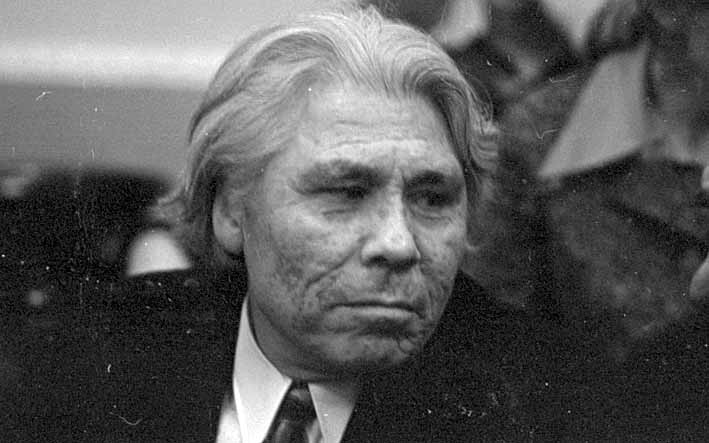
Будущий поэт и мастер слова родился пятого февраля 1918 в деревне Миништы Уфимской губернии. Окончил семилетнюю школу в селе, после этого поступил на рабочий факультет в Уфе. В 1938 году поступил в институт на факультет языка и литературы. Однако его учебу прервала Великая Отечественная война. Назар пошел на фронт. После окончания войны он вернулся в институт и в 1946 году окончил его.
После окончания института работал в различных башкирских газетах. Уже став достаточно известным, стал председателем правления Союза писателей Башкортостана. Писатель вел очень активную общественно-полезную работу: неоднократно избирался депутатом Верховного Совета Башкирской АССР, являлся делегатом многих съездов писателей Российской Федерации и СССР. Стихи Назара Наджми настолько популярны, что многие известные композиторы писали музыку на эти слова, и тем самым получались замечательные песни, которые очень любимы слушателями.
Еще при жизни он был признан как поэт, который вошел в золотую сокровищницу башкирской поэзии. Один из самых известных башкирских поэтов умер шестого сентября 1999 года в городе Уфе. Последней волей Назара было желание, чтобы его похоронили на Родине. Завещание было исполнено. Поэт похоронен перед въездом в родную деревню.
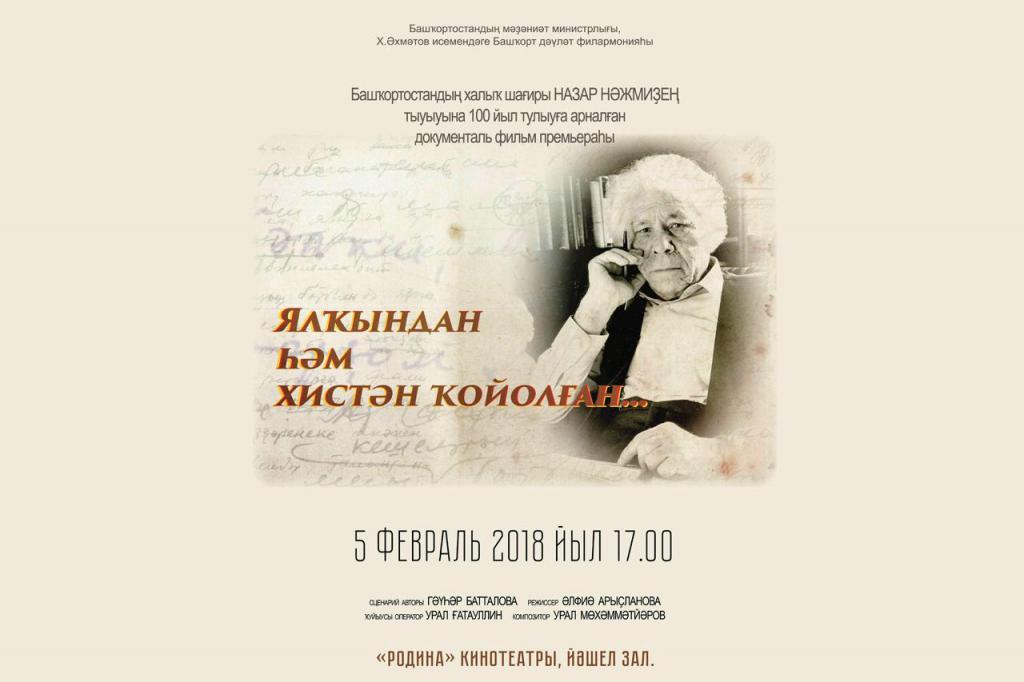
Как достаточно известный поэт, Назар Наджми имеет большое количество наград и премий. Некоторые его награды имеют военное прошлое, поскольку поэт является фронтовиком, он прошел всю войну. Вот список наград, которые отмечены в официальной биографии Назара Наджми:
Наградой также можно считать упоминание биографии Назара Наджми в книге "История башкирской литературы".
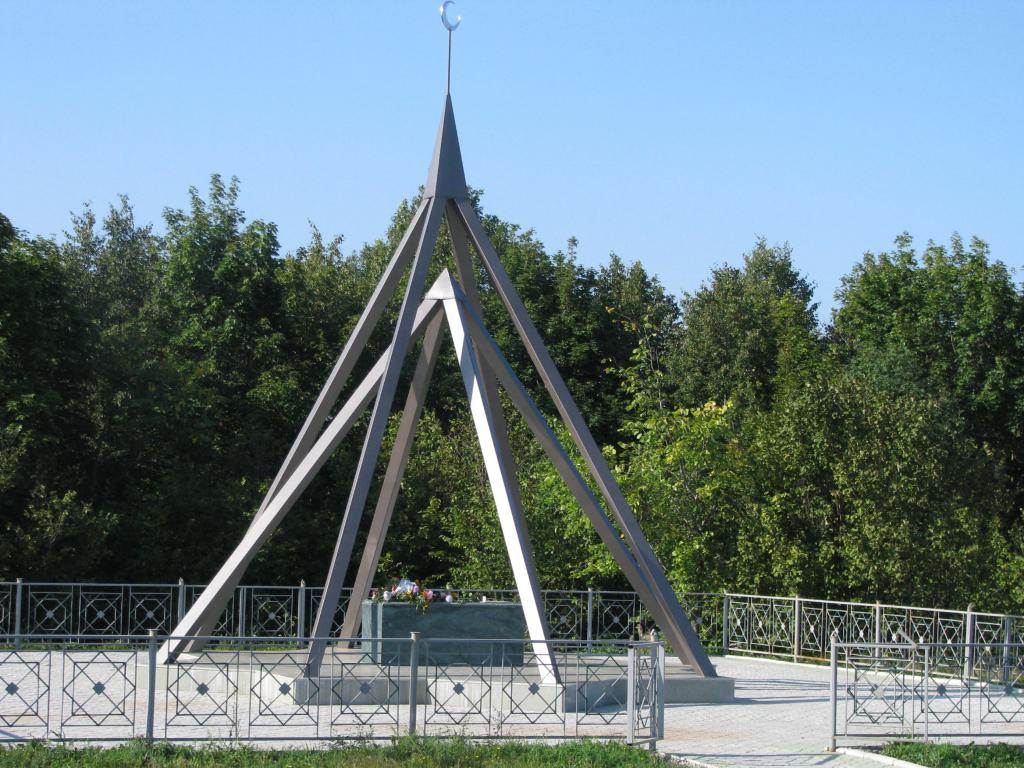
За свою долгую жизнь Назар Наджми написал большое количество произведений, которые не могут оставить читателя равнодушными. Как говорят в самом Башкортостане:
Его творчество - вечно познаваемая тайна.
Стихи поэта подкупают читателя своей душевностью, глубиной мысли, искренностью, музыкальностью. Как уже было написано выше, многие его произведения положены на музыку и очень популярны. Наиболее ярко талант Назара Наджми виден в его поэмах. Он является автором шестнадцати поэм. Более того, практически все они уникальны, мотивы поэт старался брать из жизни башкир, чтобы показать читателю все своеобразие жизни башкирского народа.
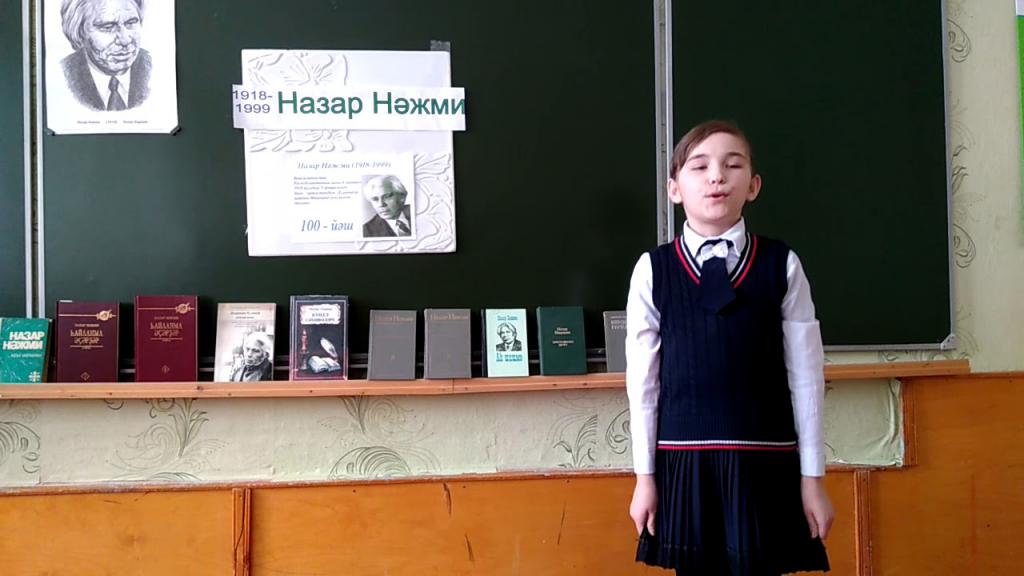
Большинство поэм были переведены на русский язык и очень полюбились читателям, остальные же, которые еще не дошли до русского читателя, еще ждут своей очереди, чтобы стать любимыми для публики. Сам поэт, в свою очередь, не остался в долгу и перевел многие русские стихи на башкирский язык, сделав русскую культуру чуть ближе для башкирского читателя. При жизни поэта было выпущено трехтомное собрание его сочинений на башкирском языке, что также говорит о большой его популярности и народной любви к его произведениям.
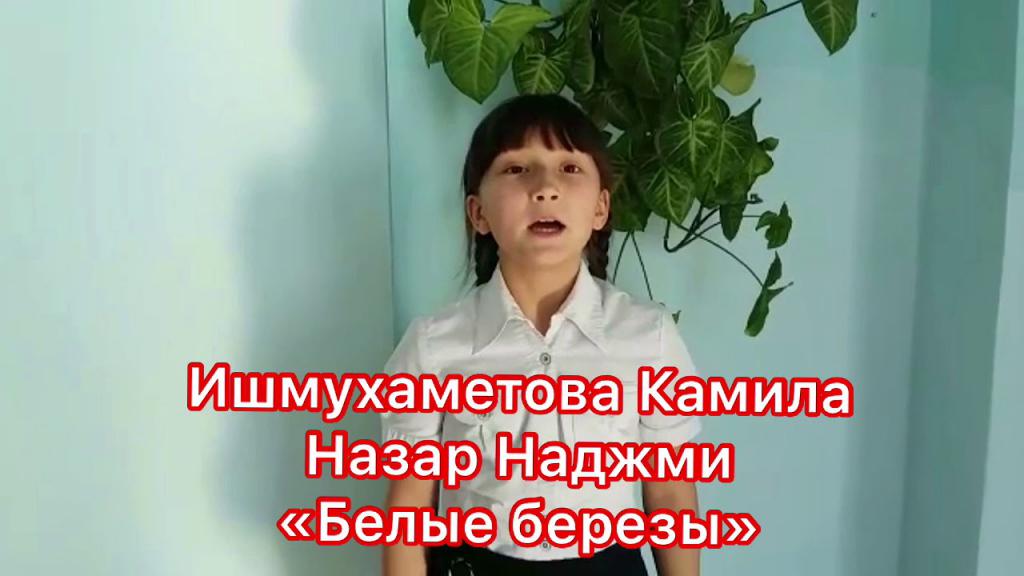
Люди часто недооценивают значение региональных писателей. Они сохраняют культуру малых народов. Мы знаем много известных писателей, которые сыграли большую роль в сохранении культуры своих народов. Их отличительная особенность в том, что они пишут на своем родном языке. Такие писатели:
Есть еще много писателей - выходцев из малых народов, всех не перечислишь. Однако эти трое сыграли самую большую роль в сохранении народной культуры. Остановимся на Назаре Наджми. Он - культурный герой своего народа, в книге "История башкирской литературы" Назару посвящена основная роль. Там же и написана полная официальная биография Назара Наджми на башкирском языке. Это лишь показывает отношение самих башкир к поэту. А в этой статье мы представили краткую биографию Назара Наджми, но только уже на русском языке, можно надеяться, что после прочтения статьи захочется глубже изучить его произведения, чтобы ощутить всю их красоту.
fb.ru
Родился 5 февраля 1918 года в деревне Миништы ныне Дюртюлинского района Башкортостана.
Учился в сельской семилетней школе, затем — в Уфимском металлургическом рабфаке «Востоксталь». В 1938 году поступает в Башкирский государственный педагогический институт имени К. А. Тимирязева на факультет языка и литературы. В 1941 году уходит на фронт, в 1946 году закончил учёбу в Башкирском государственном педагогическом институте имени К. А. Тимирязева. С 1947 по 1949 годы работает в редакциях газеты «Совет Башкортостаны», журнала «Литературный Башкортостан». В 1955 работает директором Башкирского академического театра драмы имени Мажита Гафури. С 1955 по 1959 годы — редактор сатирического журнала «Хэнэк» ('«Вилы»'). С 1962 по 1969 годы — председатель правления Союза писателей Башкортостана.
Поэт вел большую общественную работу: избирался депутатом Верховного Совета БАССР, членом правления Союза писателей БАССР и РСФСР, делегатом многих съездов писателей Российской Федерации и СССР.
Назар Наджми — один из наиболее выдающихся лириков, своими прекрасными стихами — и светлыми, и печальными, он вошёл в золотую сокровищницу башкирской поэзии. Но этим его творчество не ограничивается. Он создал такие произведения, как «Мальчик, открывающий ворота», «Одиннадцать песен о друге», «Поэт и царь», «Дьявол», «Урал», которые являются одними из высочайших достижений башкирской поэмы.
На многие стихи Назара Наджми были написаны песни известными башкирскими композиторами — Загиром Исмагиловым, Нариманом Сабитовым, Хусаином Ахметовым, Римом Хасановым и другими. Многие из его песен стали популярными в Башкирии и за её пределами.
Назар Наджми умер 6 сентября 1999 года в Уфе. По завещанию похоронен на родине (на холме, перед въездом в село Миништы).
| Рождение и смерть — две крайних даты,А между ними — жизни торжество.В последний путь, познав всю боль утраты,Толпой проводим друга своего.Другой уйдет — и голову в печалиНад ним склоняет целая страна.А в мир входил — его мы не встречали,Была с ним рядом только мать одна. Назар Наджми |
xn--b1aeclack5b4j.xn--j1aef.xn--p1ai
Родился 5 февраля 1918 года в деревне Миништы ныне Дюртюлинского района Башкортостана.
Учился в сельской семилетней школе, затем — в Уфимском металлургическом рабфаке «Востоксталь». В 1938 году поступает в Башкирский государственный педагогический институт имени К. А. Тимирязева на факультет языка и литературы. В 1941 году уходит на фронт, в 1946 году закончил учёбу в Башкирском государственном педагогическом институте имени К. А. Тимирязева. С 1947 по 1949 годы работает в редакциях газеты «Совет Башкортостаны», журнала «Литературный Башкортостан». В 1955 работает директором Башкирского академического театра драмы имени Мажита Гафури. С 1955 по 1959 годы — редактор сатирического журнала «Хэнэк» ('«Вилы»'). С 1962 по 1969 годы — председатель правления Союза писателей Башкортостана.
Поэт вел большую общественную работу: избирался депутатом Верховного Совета БАССР, членом правления Союза писателей БАССР и РСФСР, делегатом многих съездов писателей Российской Федерации и СССР.
Назар Наджми — один из наиболее выдающихся лириков, своими прекрасными стихами — и светлыми, и печальными, он вошёл в золотую сокровищницу башкирской поэзии. Но этим его творчество не ограничивается. Он создал такие произведения, как «Мальчик, открывающий ворота», «Одиннадцать песен о друге», «Поэт и царь», «Дьявол», «Урал», которые являются одними из высочайших достижений башкирской поэмы.
На многие стихи Назара Наджми были написаны песни известными башкирскими композиторами — Загиром Исмагиловым, Нариманом Сабитовым, Хусаином Ахметовым, Римом Хасановым и другими. Многие из его песен стали популярными в Башкирии и за её пределами.
Назар Наджми умер 6 сентября 1999 года в Уфе. По завещанию похоронен на родине (на холме, перед въездом в село Миништы).
| Рождение и смерть — две крайних даты,А между ними — жизни торжество.В последний путь, познав всю боль утраты,Толпой проводим друга своего.Другой уйдет — и голову в печалиНад ним склоняет целая страна.А в мир входил — его мы не встречали,Была с ним рядом только мать одна. Назар Наджми |
http-wikipediya.ru